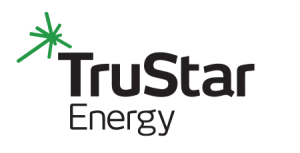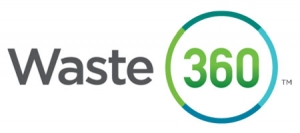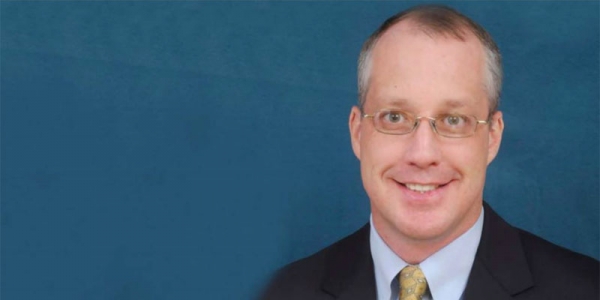

FOR IMMEDIATE RELEASE
One North Lexington Avenue
White Plains, NY 10601
Tel: (914) 421-4900 | Fax: (914) 421-0052
Email: info@fortistar.com

June 29, 2018
Fortistar’s Unger Explains What’s Next in the Renewable Fuels Space

Fortistar’s Unger Explains What’s Next in the Renewable Fuels Space legislation that, if passed, could open up big opportunities.
Arlene Karidis I Jun 29, 2018
David Unger, SVP at Fortistar, shares insight on potential risks to investors and how change could impact small methane gas producers.
Renewable natural gas (RNG) is an ongoing hot topic. There is constant change that could affect where this growing niche could go, from federal policies that drive incentives to advance RNG to California.
Waste360 sat down with David Unger, senior vice president at Fortistar, an energy asset management firm focused on low-carbon energy generation, to talk about where the industry is going. He shares insight on potential risks to investors and ways to mitigate them, what he anticipates the future will look like and how change could impact small methane gas producers, which may come as a surprise.
Waste360: What is driving the uptick in the RNG business?
David Unger: The initial driver was the U.S. Environmental Protection Agency’s (EPA) renewable fuel standard, which developed the Renewable Identification Number credits (RINs) program.
In addition to the federal credit program, there is California’s Low-Carbon Fuel Standard credits (LCFS). And I think there will be increasing movement in other states. Oregon has adopted a program similar to California’s, and other states are looking into it. These incentives are proving out as far as helping to reduce carbon.
A second is the pursuit of lower carbon fuels. Large, multinational corporations have been focused on this, but now smaller companies and their customers are becoming increasingly aware of the effects of carbon and want to reduce their carbon footprint.
Waste360: How will Fortistar take advantage of what’s happening with RNG?
David Unger: One main focus will be to pursue biogas producers or landfills that have at least 1,500 cubic feet per minute of gas. They are good candidates for renewable natural gas projects. We will continue to develop projects we currently have gas rights for.
Waste360: There’s been talk about whether credits could go away in the future or at least decrease in value. What are your thoughts on this?
David Unger: There are significant regulatory risks around credits. That’s a challenge but also a strategy, and one we have in place is to be positioned to structure projects to minimize those risks. We do this through relationships with obligated parties willing to share some financial risk, so we have a better chance of projects going forward.
There is risk tied to technology. You need proven gas cleanup technology that’s tailored for individual projects.
A lack of education can be problematic, too. It’s important to address stakeholders’ concerns around projects. California is setting up programs to support RNG, and in the last three years, utilities there have gone from trying to avoid biogas in their pipeline to supporting it. That was a 180-degree turn. Utilities are learning how it can be cleaned and that it can be safe in their pipelines.
Waste360: There’s a lot of chatter lately about California’s acceptance of injecting RNG into its pipelines and what it might mean for stakeholders. What can you add to the conversation?
David Unger: It think it will open up opportunities, especially for smaller projects to do business there. A big incentive is you can qualify for both RINs and LCFS for the same fuel if it’s located in California. What will happen is gas with the lowest carbon will go to California and be used there.
Opportunities in California will favor smaller projects like anaerobic digesters processing manure or food waste because they have the lowest carbon intensities. So, the key would be to promote more projects with lower carbon intensity, which will be smaller ones close to California.
Waste360: Have you seen any activity that you would not have expected?
David Unger: One trend that really surprised me is we are seeing several opportunities for developers of existing electric projects. Landfill or biogas project owners are working to get value from their existing contracts and then transitioning to RNG for more value. We think there’s great opportunity to convert these existing projects.
Waste360: What main message do you want to put out to encourage stakeholders and others to consider investing in these projects?
David Unger: Fortistar would like to emphasize that good candidates for these projects include those who are smaller than most people think. Digesters can be built smaller because they have better carbon intensity. You can develop them down to 200 cfm. The output is of the same purity, but certain feedstocks have lower carbon intensity so they receive more carbon credits.
But I want to impart that RNG is the next step in renewables for many stakeholders-for Fortistar and the whole industry.
About Fortistar
Founded in 1993, Fortistar is a privately-owned investment firm that provides capital to build, grow and manage companies that address complex sustainability challenges. Fortistar utilizes its capital, flexibility and operating expertise to grow high-performing assets, first in independent power projects and now into other areas that support decarbonization. As a team, Fortistar has led financings raising over $3.5 billion in capital for companies and projects in the energy, transportation and industrial sectors. For more information about Fortistar or its portfolio companies, please visit: www.fortistar.com and follow the company on LinkedIn.
Media Contact: Caleigh Bourgeois (513) 675-7466 caleigh.bourgeois@kglobal.com
About Trustar Energy
TruStar Energy, a subsidiary of Fortistar, is one of the nation’s leading developers of compressed natural gas (CNG) fueling stations. With decades of experience, the company’s professionals are experts at providing CNG fueling solutions that are ready on time, on budget and that are profitable for their owners. With a rapidly growing network of public stations and 24/7 service and support, we’re always there when you need us.
TruStar Energy puts fleet owners in the driver’s seat by offering best-in-class, options to meet a full range of fueling needs. For additional information, please visit www.trustarenergy.com and follow us on LinkedIn and Twitter.
TruStar Energy: Fueling Success. Driving Change.